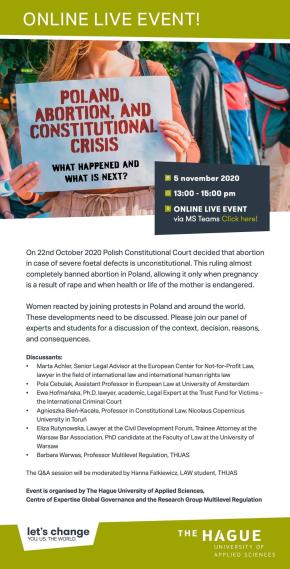On 22 October, the Polish Constitutional Court decided that abortion in the case of severe foetal defects is unconstitutional, in this way taking away the right to one of the three exceptions to the total ban on abortion in the country. The decision of the Constitutional Court spurred mass assemblies around the country which have continued since, with a culmination on 30 October when a general strike was called and saw over 100,000 people on the streets of Warsaw alone. Other major cities also hosted mass assemblies. The assemblies took place despite a ban on gatherings of more than 50 people – based a regulation introduced from March 20, 2020 and continue even though a new restriction on gatherings of more than 5 people has been introduced on 3 November, 2020 to prevent the spread of corona virus.
Indeed, the protests come in the context of the COVID-19 pandemic, which has not deterred protesters, yet simply changed some modus operandi, that is, taking care to social distance and imploring on protesters to wear masks. Furthermore, the protests have also given rise to counter-demonstrations by conservative and sometimes right- wing groups. The government issued a decree sending the military police to keep public order, under the guise of the COVID-19 pandemic. The use of force against protesters has been noted on a number of occasions, but so too has the joining of police with the protesters - raising issues of their neutrality and compatibility of actions under international law. Finally, spontaneous protests are taking place in various places, the metro, on the street, in public buildings and in front of churches.
Last but not least, coordinated online actions are also taking place for those who cannot join physically whether in the country or abroad, breathing life into the recently adopted General Comment 37 on the right to peaceful assembly, which recognizes online assemblies.
ECNL will discuss international standards on assemblies in the Polish context at an online panel organised by the Hague University of Applied Sciences on November 5 bringing together lawyers, academics, journalists, students and activists.
We continue to monitor developments in Poland as well as the use of legal restrictions on the right to peaceful assembly as part of state responses to the COVID-19 pandemic.
